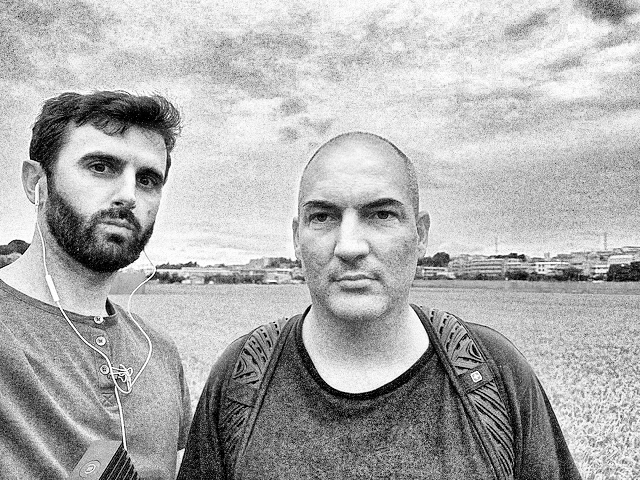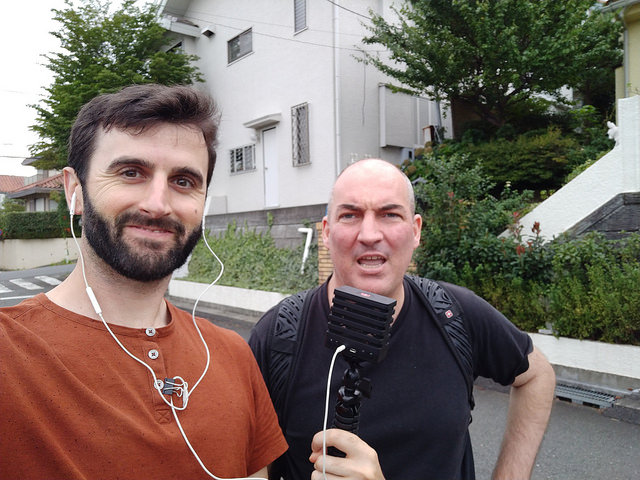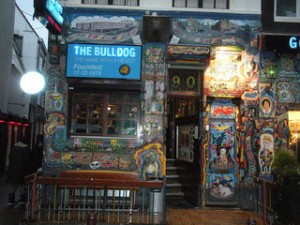Phone booth being used as a toilet? Bicycles being thrown into rivers? Vending machines being driven into by cars? Today on the podcast, the great Matthew Dons riffs on the many things that just could not happen in Japan. Yet, actually happen in this world. Get those ears ready for a treat!
Tag Archives: crime
Matthew Dons: A Walk Around His Tokyo
In the eyes of Matthew Dons, whomever you are in this world, if you could make it over to Japan, you absolutely should be here. Why? Because Japan.
Today on the podcast, we take a long walk past the houses and trains, the fields and shrines, while looking at how things work here compared to anywhere else. There is learning but there is also a lot of laughing, mostly my own. Listen and enjoy.
Reminder also, Matthew is fighting to live longer, in a relentless battle against cancer; you can help his family afford this struggle by going to http://matthewdons.org and join the almost 900 people that have already donated.
Sabotaging Drug Policy in the Netherlands

Before the city of Maastricht chose to pursue marijuana prohibition policies they first asked a team of researchers to examine what impact it would have. The researchers found that the proposed “membership” system for coffeeshops, which included banning all non-residents from going into establishments, would have disastrous effects on the cities public safety, health, and economic situation. In response, the government demanded new research with results that would support their new mission to shut down marijuana cafe’s that have existed since the 1990’s. Today there are a several municipalities that have adopted this prohibition policy that is scheduled to go national by January 2013, and the results are already being felt. Nicole Maalsté is a researcher from Tilburg University who has been examining the issue of drug policy and coffeeshops in the Netherlands over the course of several decades. She joins me on today’s podcast to explain what her work has revealed and just how the relationship between politics and research has led to a startling reality on the street level.
Honduras: The Most Dangerous Country

In 2011 the Republic of Honduras became the most dangerous country in the world. With the murder rate rising and wages plummeting, the miitary have now been granted extraordinary police powers. Multinational mining, agribusness, and textile corporations pay poverty wages while the government cooperates closely with the objectives of the US military. The result is what human rights observers like Gilda Batista have described as an unsustainable situation where something big is about to happen. From the streets of Tegucigalpa to the mines of the Siria Valley, something terrible is going on in Honduras, something the internaitonal headlines have been afraid to address.
To help better understand the situation on the ground and how things got this way, my guests on this podcast are:
- Gilda Batista, Human Rights Defender, Prosecutor – Refuge Without Limits
- Grahame Russell, Director – Rights Action
This podcast was co-produced by Jeremy Kryt, who's investigative work on Honduras can be read on In These Times
ctrp368 Understanding Restorative Justice

Restorative Justice (RJ) isn’t a new idea but in the modern day world of criminal justice, few people know about the tremendous impact it is having in different parts of the world. In an era where everyone likes to talk about being tough on crime and locking away or executing the bad guys, RJ is making strides in areas our criminal justice system never could on its own.
The following podcast is to introduce the concept and practice of restorative justice as it is being used to address crime on a individual as well as mass scale. As we watch citizens of nations throughout North Africa and the Middle East, as well as in the United States, rise up and demand justice, it is more important then ever to examine how to best achieve this justice and address the emotion and trauma that comes with it.
My guests are:
Les Davey – CEO of the International Institute for Restorative Practice UK
Howard Zehr – Professor of Restorative Justice at Eastern Mennonite University’s graduate Center for Justice and Peacebuilding and is the editor of The Little Books of Justice and Peacemaking series.
Newark Night Patrol W/Cory Booker
 The story is not unique to Newark, all over the United States there are cities that are struggling. But what is unique is how citizens of Newark respond. Led by Newark Mayor Cory Booker, a man who loves his gadgets and social networking, groups of volunteers from all walks of life ride the streets of the city in packs of caravans, looking around to see what is going on, who needs help, and what doesn’t look right. In cooperation with the police and department of public safety, the objective is to stem the violence, reduce crime, and show residents that people do care. As the mayor himself said to me, it is also a chance for people from different backgrounds, races, religion, geographic locations, you name it – to meet each other and engage in this community activity together.
The story is not unique to Newark, all over the United States there are cities that are struggling. But what is unique is how citizens of Newark respond. Led by Newark Mayor Cory Booker, a man who loves his gadgets and social networking, groups of volunteers from all walks of life ride the streets of the city in packs of caravans, looking around to see what is going on, who needs help, and what doesn’t look right. In cooperation with the police and department of public safety, the objective is to stem the violence, reduce crime, and show residents that people do care. As the mayor himself said to me, it is also a chance for people from different backgrounds, races, religion, geographic locations, you name it – to meet each other and engage in this community activity together.
In this podcast I take you along on a night patrol with pack #2. Along the way you’ll hear stories, some serious, some not so serious, but each from a different volunteer with a unique connection to the city of Newark. You will also hear from Cory himself, as he prepares us all before we hit the streets, and later on when he and I had a chance to talk about this initiative and how it has been received by the city.


